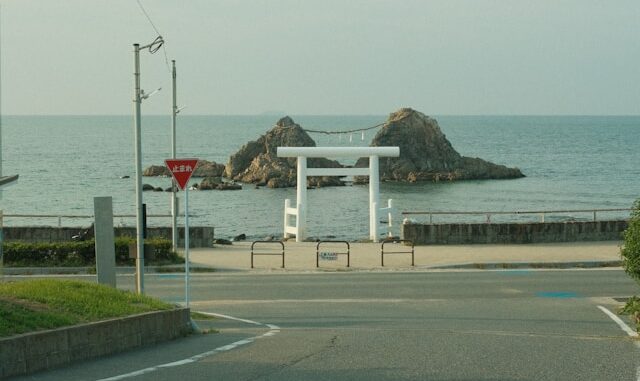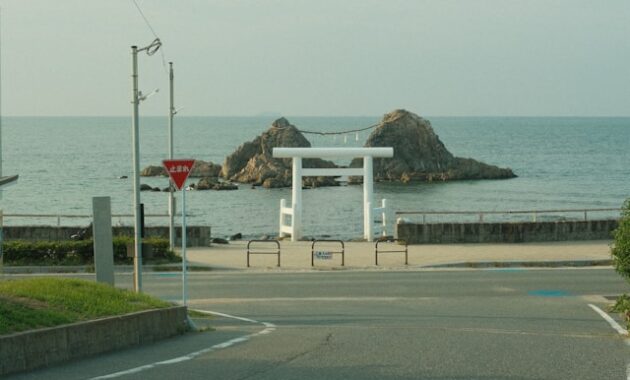
Naha, the vibrant capital of Okinawa Prefecture, is more than just a tropical getaway—it’s a captivating blend of history, culture, affordability, and natural beauty. Nestled in Japan’s southernmost island chain, this coastal city draws expats, digital nomads, and locals seeking a slower, yet culturally rich lifestyle. Here’s everything you need to know about living the island life in Naha, Okinawa, covering its unique culture, cost of living, and subtropical climate.
A Deep Dive into Okinawan Culture in Naha

An Indigenous Heritage with Global Influences
Unlike mainland Japan, Okinawa was once an independent kingdom known as the Ryukyu Kingdom, and its influence is still tangible in the language, cuisine, music, and architecture. In Naha, ancient traditions coexist with modern life. Visitors and residents alike are charmed by Shuri Castle, a UNESCO World Heritage site that echoes the city’s regal past.
Naha celebrates a unique identity. The local dialect, Uchinaaguchi, remains in use among older generations and is taught in schools to preserve linguistic heritage. Festivals like the Naha Tug-of-War Festival, one of the largest in the world, and the Shurijo Castle Festival showcase ancient customs and colorful costumes, creating unforgettable experiences that root residents in a deep sense of place.
Culinary Culture Rooted in Longevity
Okinawan cuisine is globally recognized for contributing to the islanders’ famed longevity. Dishes like goya champuru (bitter melon stir-fry), rafute (braised pork belly), and Okinawa soba are staples. The locals emphasize a diet rich in vegetables, seafood, and fermented foods. In Naha, food markets such as Makishi Public Market offer not only fresh ingredients but also a vibrant glimpse into daily life and social culture.
Affordable Island Living in an Expensive Country
Cost of Housing in Naha
Living in Japan is often synonymous with high costs, but Naha stands out as one of the most affordable cities in the country. Whether you’re a single expat, retiree, or digital nomad, rental prices in Naha are refreshingly budget-friendly.
- One-bedroom apartments in central Naha typically range between ¥40,000–¥60,000 ($270–$400) per month.
- In the suburbs or near the beach, costs drop to ¥30,000–¥50,000 ($200–$350).
- Utility costs remain modest, averaging ¥8,000–¥12,000 ($55–$85) per month depending on the season.
Many housing options come furnished, especially those targeted toward foreigners, making relocation seamless and cost-effective.
Everyday Expenses: Food, Transport, and Services
Eating out in Naha is delightfully inexpensive. A typical lunch at a local eatery may cost around ¥500–¥800 ($3.50–$6), while dinner at a mid-range restaurant rarely exceeds ¥2,000 ($14). Groceries are priced comparably to or even cheaper than mainland Japan, especially for tropical fruits and local produce.
Transportation is also economical:
- Monorail rides within the city start at ¥230 ($1.60).
- Taxis are readily available and cheaper than in Tokyo or Osaka.
- Many locals opt for scooters or bicycles due to the compact nature of the city.
Public health care in Okinawa is high quality and affordable, with the National Health Insurance program covering the majority of medical costs for residents.
The Subtropical Climate: Endless Summer with Seasonal Variations
Weather in Naha: What to Expect Year-Round
Naha enjoys a humid subtropical climate, making it ideal for those who love warm weather. Summers can be hot and humid, but ocean breezes moderate the extremes.
- Summer (June to September): Temperatures range between 28°C–33°C (82°F–91°F), with high humidity and occasional typhoons.
- Autumn (October to November): Slightly cooler and less humid, offering perfect beach weather and clear skies.
- Winter (December to February): Mild with temperatures between 14°C–20°C (57°F–68°F)—no need for heavy coats.
- Spring (March to May): Pleasant and dry, a favorite time for outdoor exploration.
Although typhoons are common in summer, Naha’s infrastructure is well-prepared, and the city recovers quickly after storms.
Naha’s Lifestyle Perks for Expats and Digital Nomads
Laid-Back Island Vibes with Urban Convenience
Naha offers the best of both worlds: a relaxed, beach-oriented lifestyle combined with modern urban amenities. With its abundance of cafés, coworking spaces, and English-speaking locals, it’s an emerging hub for remote workers and entrepreneurs.
The Tomari Port area connects the city to nearby islands like Tokashiki and Zamami, making weekend getaways simple and affordable. Additionally, Kokusai-dori Street, the main shopping and entertainment district, pulsates with local crafts, live music, and traditional Ryukyuan performances.
Safety, Community, and Education
Okinawa is renowned for its low crime rate and welcoming community. Locals are known for their hospitality and strong community bonds. The presence of U.S. military bases also contributes to a sizable English-speaking population and an array of international services and schools.
For families, Naha offers quality education options, including international schools and language immersion programs for children. This makes it an appealing choice for long-term expatriates.
Outdoor Adventures and Natural Attractions
Beaches, Parks, and Diving Spots
Naha is a gateway to Okinawa’s pristine beaches, with Naminoue Beach located within the city itself. Beyond that, short ferry rides lead to world-class snorkeling and diving destinations such as Kerama Islands, known for crystal-clear waters and abundant marine life.
Yogi Park and Fukushuen Garden provide serene escapes in the city, while hiking trails, hidden waterfalls, and scenic coastal roads await explorers who venture inland.
Outdoor activities like kayaking, scuba diving, and stand-up paddleboarding are not just popular—they’re integrated into everyday life, promoting a healthy, active lifestyle.
Is Naha Right for You? A Final Word on Living in Paradise
Whether you’re seeking a tranquil retirement, a base for creative work, or an affordable and culturally rich relocation option, Naha, Okinawa ticks all the boxes. It offers an exceptional quality of life, unique cultural experiences, and year-round natural beauty—all at a fraction of the cost of Japan’s major urban centers.
If your dream is to wake up to ocean breezes, enjoy nutrient-rich cuisine, and immerse yourself in a deeply rooted culture, Naha is calling.